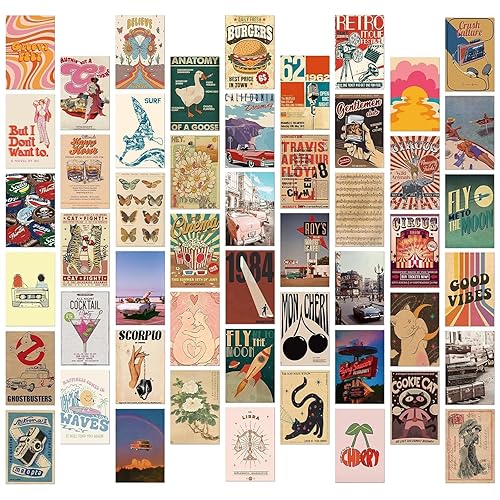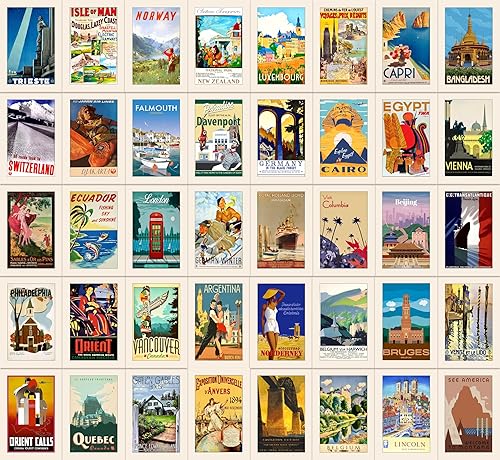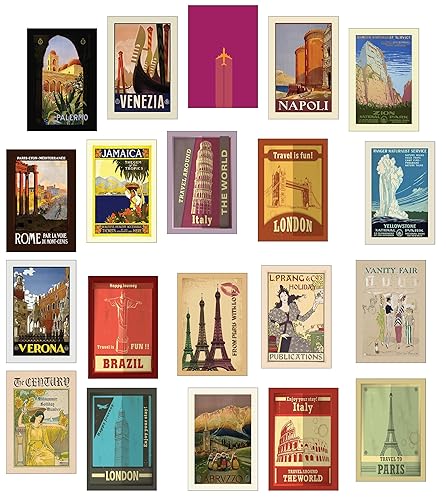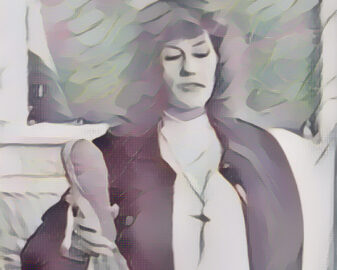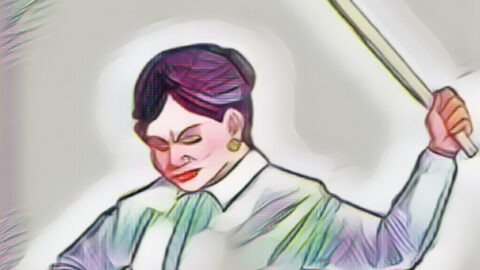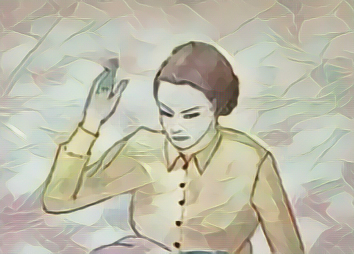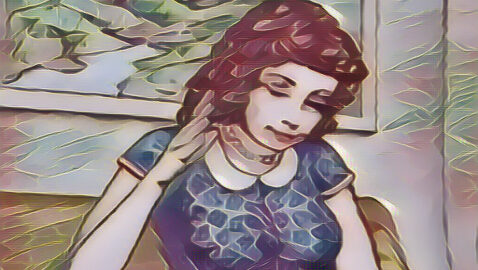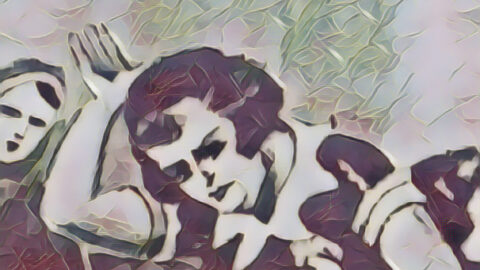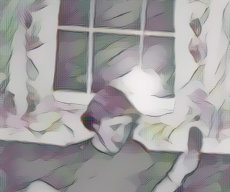My childhood unfolded in a sleepy little town where the days seemed to stretch on forever, golden and slow. The air always carried the scent of cut grass and distant woodsmoke, and the streets were lined with neat hedges and tidy gardens, each one lovingly tended by mothers like mine. Our house was small but spotless, with polished wooden floors and the faint aroma of lavender polish lingering in the air.
My mother was the heart of our home—a woman of unwavering resolve and quiet strength. She wore her practicality like a uniform: plain cotton dresses, always freshly pressed, and her hair pulled back so tightly into a bun that not a single strand dared escape. Her shoes were sturdy, her hands calloused from years of work, and her eyes—sharp, clear, and blue as a winter sky—missed nothing. She moved through life with a brisk efficiency, her every action purposeful, her voice calm but edged with a firmness that brooked no nonsense. Yet, beneath that steely exterior, there was a deep well of love and a fierce protectiveness that shaped every moment of my childhood.
My father died when I was just a toddler, a shadowy memory I could never quite grasp. His absence left a quiet ache in our home, and my mother, left to raise me alone, became both shield and compass. She wrapped me in what she called ‘cotton wool,’ determined to keep me safe from every possible harm. I was her only child, and she poured all her hopes and fears into me, watching over me with a vigilance that sometimes felt suffocating, but always came from a place of love.
She had strong opinions about the world and the people in it, especially the ‘rough boys’ from the council estate at the end of our road. To her, they were the embodiment of trouble—scruffy knees, loud voices, pockets full of mischief. “You keep away from them,” she would say, her tone brooking no argument. “If I ever catch you with those rough boys, you’ll get the slipper, and I mean it. Those boys are all heading for borstal, and it would break my heart if you ended up that way.” Her warnings were not just about physical safety, but about the dangers of bad company, the kind that could lead a good boy astray.
I remember watching those boys from my bedroom window, their laughter echoing down the street as they raced their battered bikes or played football in the dust. I longed to join them, to feel the thrill of belonging, but my mother’s words echoed in my mind, and I stayed inside, tracing patterns on the glass with my finger, caught between curiosity and loyalty.
One morning, when I was barely five, I wandered to the end of our dead-end street, drawn by the glimmer of the lake beyond the ‘dead end’ sign. The water sparkled in the early sun, and I stood there, lost in the beauty of it, the world feeling vast and full of possibility. I didn’t hear my mother’s footsteps on the gravel behind me.
Suddenly, her hand closed around my arm—firm, unyielding, but never cruel. I looked up to see her face, lips pressed into a thin line, eyes blazing with a mix of fear and anger. My little feet barely touched the ground as she marched me home, her grip steady, her silence heavy with disappointment. The walk back felt endless, my heart pounding with dread and confusion.
Inside, the house felt colder, the familiar rooms suddenly strange. She led me straight to my bedroom, her movements precise and controlled. I was too stunned to protest, too young to understand the depth of her worry. She sat down, composed and resolute, and pulled me gently but firmly across her knee. I remember the rustle of her dress, the faint scent of lavender, the way her hand hovered for a moment before coming down—swift, sure, and with a purpose that was never about anger, only about teaching.
(pause) But this time, her warning about the slipper was not just a threat—it was a promise she intended to keep. I saw her reach for it, the old brown slipper she kept tucked away in her wardrobe, its sole worn smooth from years of use. My heart thudded in my chest, a cold dread settling in my stomach as she held it in her hand, her expression grave but not unkind. She looked at me, her eyes searching my face for understanding, and said, “I warned you, and now you must learn.” (short pause) The anticipation was almost worse than the punishment itself. My breath came in shallow gasps, my cheeks burning with shame and fear, as she guided me over her lap, my small body trembling.
I could feel the cool air on my bare skin, the vulnerability of being exposed, the weight of her disappointment pressing down on me. She raised the slipper, her movements deliberate, her face set in a mask of determination. I squeezed my eyes shut, bracing for the sting. The first smack landed with a sharp, echoing crack, a jolt of pain that shot through me and left my skin tingling. I gasped, my fingers clutching at the bedspread, but I didn’t dare cry out. Again and again, the slipper came down, each swat a fiery lesson, the sound ringing in my ears, the heat building with every stroke. My mother’s face was stern, her lips pressed tight, but her eyes glistened with unshed tears—she hated this as much as I did, but she believed it was necessary.
The pain was real, a burning ache that spread across my bottom, but it was the emotional weight that lingered—the sense of having disappointed her, of having crossed a line I could never uncross. My breath came in ragged sobs, my body shaking, but I bit my lip, determined not to wail. “I’ll smack one cheek red and then I’ll do the other one,” she said, her voice steady, almost gentle, as if explaining a simple fact of life. The slipper continued its work, each smack a punctuation mark in a lesson I would never forget. When it was finally over, my bottom throbbed, hot and sore, and I could barely move for the sting.
As she helped me up, her face softened, the sternness melting away to reveal the mother I knew. She knelt down, her arms wrapping around me in a quick, fierce hug. “I only want to keep you safe,” she whispered, her voice thick with emotion. In that moment, I understood—her discipline was just another form of love, a way to hold me close even as the world tried to pull me away. The pain faded, but the lesson remained, etched into my memory as clearly as the lines on my mother’s hands.
That day stayed with me, not just as a memory of pain, but as a turning point—a moment when I learned the boundaries of my world, and the depth of my mother’s love. I never wandered to the lake alone again, and I never forgot the lesson she taught me—not just about obedience, but about the fierce, protective love that shaped every part of my childhood. Her discipline became the foundation on which I built my sense of right and wrong, her warnings echoing in my mind whenever I was tempted to stray.
Looking back now, I see my mother not as a figure of fear, but as a guardian—unyielding, yes, but always fair. Her rules were the walls that kept me safe, her discipline the foundation on which I built my life. And though I sometimes resented her strictness, I know now that every smack, every stern word, was given out of love.
Childhood in that little town was a tapestry of sunlight and shadows, laughter and tears, innocence and discipline. And at the center of it all was my mother—her love, her strength, her unwavering belief that I could grow up to be good, and kind, and safe.
